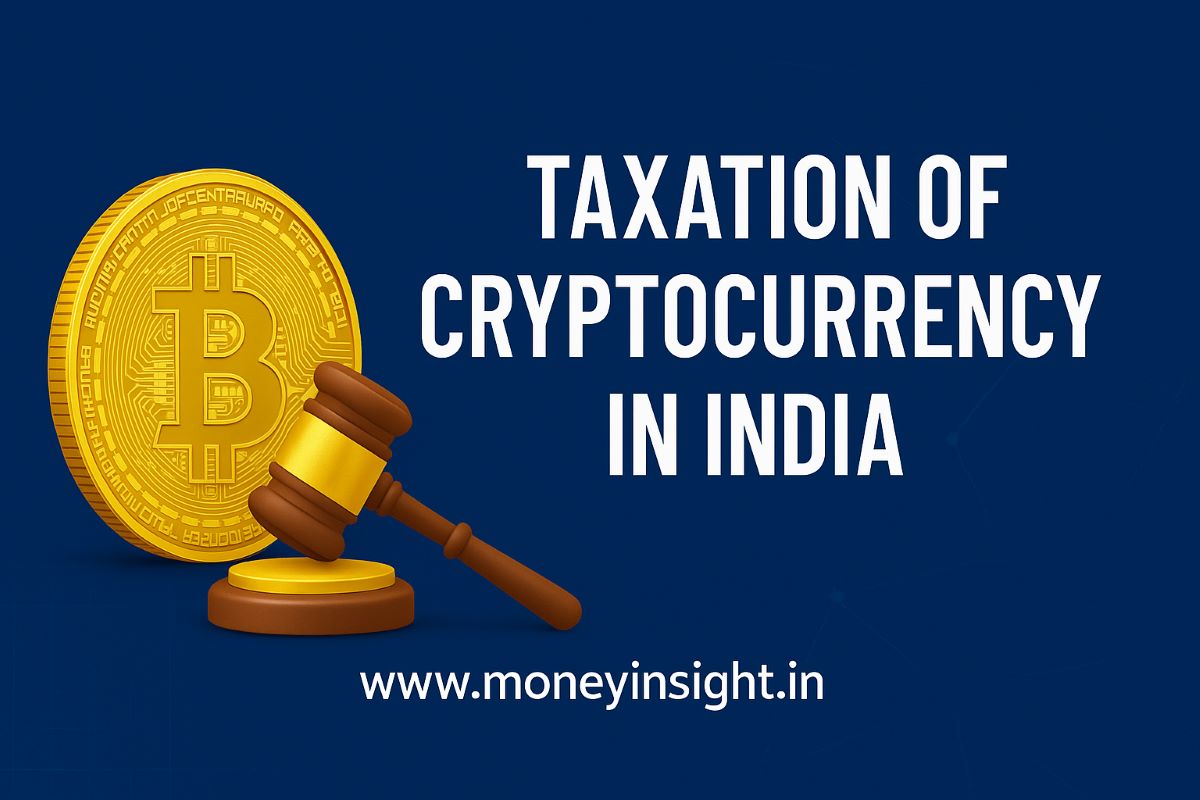Taxation of Cryptocurrency in India: A 2025 Overview
Cryptocurrency has evolved from a niche digital experiment to a mainstream financial asset in India. With growing adoption, the Indian government has implemented a structured tax regime to regulate Virtual Digital Assets (VDAs), which include cryptocurrencies, NFTs, and other blockchain-based tokens. Here’s a comprehensive look at how crypto is taxed in India as of 2025.
💰 Flat 30% Tax on Gains
Under Section 115BBH of the Income Tax Act, any income arising from the transfer of VDAs is taxed at a flat rate of 30%, regardless of whether the gains are short-term or long-term. This rate applies to profits from selling, swapping, or spending crypto assets. Importantly, no deductions are allowed except for the cost of acquisition—meaning transaction fees, mining costs, or platform charges cannot be claimed.
📉 No Loss Set-Off or Carry Forward
Unlike traditional assets like stocks or mutual funds, losses from crypto transactions cannot be set off against other income or even gains from other VDAs. Additionally, such losses cannot be carried forward to future years. This makes crypto taxation particularly stringent and demands careful planning from investors.
🔁 1% TDS on Transfers
To ensure compliance, the government introduced Tax Deducted at Source (TDS) under Section 194S. A 1% TDS is levied on the sale consideration of crypto transactions exceeding ₹10,000 (₹50,000 for specified persons) in a financial year. This applies to trades on Indian exchanges, peer-to-peer transfers, and even crypto-to-crypto swaps. The deducted TDS must be reported and can be adjusted while filing the Income Tax Return (ITR).
🎁 Tax on Gifts and Airdrops
Crypto received as a gift or airdrop is taxable in the hands of the recipient. The fair market value of the asset on the date of receipt is considered income and taxed at 30%. If the asset is later sold, the previously taxed value becomes the cost of acquisition for calculating capital gains.
⛏️ Mining and Staking Income
Income from mining or staking is also taxable. While the infrastructure cost for mining is not deductible, the income generated from selling mined or staked tokens is taxed at 30%. These earnings are typically reported under “Income from Other Sources” or “Business Income,” depending on the nature of activity.
🧾 Mandatory Reporting in ITR
Starting FY 2025–26, all crypto transactions must be reported under Schedule VDA in the ITR. This includes details of gains, losses, TDS, and the nature of transactions. Crypto exchanges are also required to submit detailed reports to tax authorities, enhancing transparency and reducing evasion.
📌 Conclusion
Taxation of Cryptocurrency In India : India’s crypto tax framework is one of the most stringent globally, reflecting the government’s cautious stance. While it legitimizes crypto as a taxable asset, it also imposes high compliance burdens. For investors and traders, maintaining detailed records and consulting tax professionals is essential to navigate this evolving landscape.
Read Also:
How to make maximum profit with minimum investment from the Stock Market ? – MoneyInsight
Also Read :
How to make money from share market? (indiatimes.com)
AGLI DUNIYA: शेयर बाजार से पैसे कैसे कमाए ?
Visit our another Group Website regularly for more such Educational Research Articles:
News4You – News & Views On Personal Finance & Share Market
Visit our Website regularly for more such Educational Research Articles:

